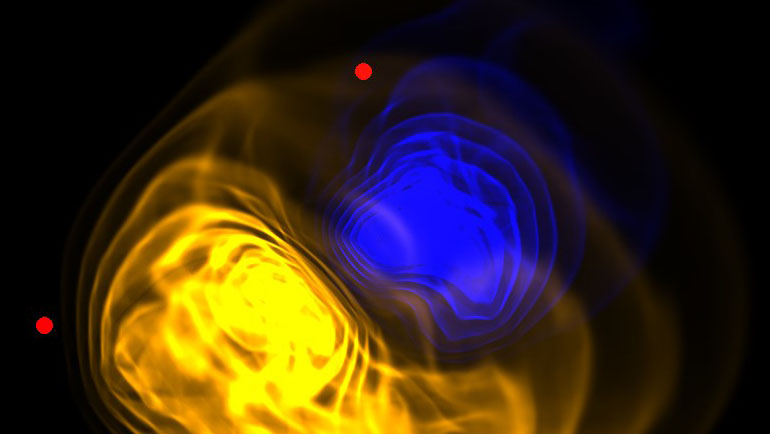Physics JETSCAPE collaboration receives $4 million NSF grant renewal

A multi-institutional study led by Wayne State University physicists and computer scientists will continue with a $4 million renewal grant from the National Science Foundation.
Researchers working on the JETSCAPE collaboration say the new funding will allow them to continue to study critical elements of high energy nuclear physics. The renewed grant will total more than $4 million over four years.
The collaboration consists of a multi-disciplinary team of physicists, computer scientists and statisticians from 13 institutions (UC Berkeley, Brookhaven National Lab, Duke, Kent State, Lawrence Berkeley National Lab, Lawrence Livermore National Lab, MIT, McGill, Oak Ridge National Lab., Ohio State, Tennessee, Texas A&M, and Wayne State). This elite team will create an open-source statistical and computational software to help scientists better understand high energy nuclear collisions.
Microseconds after the Big Bang, the temperature of the universe was over several trillion degrees celsius. At this temperature, protons and neutrons melt into a plasma of quarks and gluons called a Quark-Gluon Plasma (QGP). The exact internal structure and interactions within the QGP is still unknown. Experiments at the Large Hadron Collider at the European Center for Nuclear Research (CERN), collide large nuclei such as lead, at extreme energies, and achieve the compression necessary to produce exploding droplets of this exotic state of matter.
The JETSCAPE collaboration aims to better understand the dynamics of these collisions and the QGP with sophisticated computer simulations, where a variety of theoretical models can be explored in rigorous statistical comparisons with experimental data.
Wayne State physics professor and lead investigator Abhijit Majumder is one of the top experts in the development of theoretical techniques for understanding the dynamics of high-energy nuclear collisions.
“This renewal will allow the JETSCAPE tool to broaden and evolve into a much more elaborate simulator (which we refer to as X-SCAPE), which could be applied to a variety of future experiments, such as at FAIR in Germany and the Electron-Ion Collider at Brookhaven National Lab," says Majumder. "This will bring all high energy nuclear experiments under a single simulation umbrella, allowing for a cross-pollination of ideas between different experiments.”
Co-PIs include WSU professors Chun Shen, Joern Putschke and Loren Schwiebert.
The award number for this National Science Foundation grant is 2004571. For more information about the National Science Foundation, visit nsf.gov.
Contact info
Julie O'Connor
Director, Research Communications
Phone: 313-577-8845
Email: julie.oconnor@wayne.edu